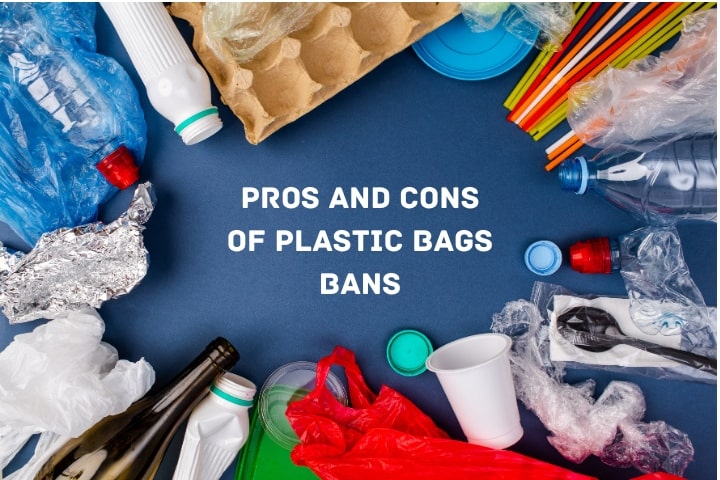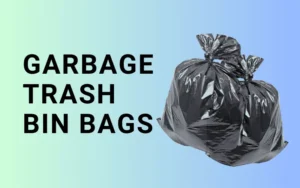
One thing becomes obvious when the benefits of banning plastic bags are weighed against the drawbacks: there isn’t much of a case against a ban on single-use plastic bags. Even though plastic bags can be recycled, only a small portion of them actually end up in a recycling bin. Reusable polypropylene (PP) bags, on the other hand, make use of recycled materials from the post-industrial and pre-consumer sectors.
No matter how the statistics are tallied, plastic bags do not safely decompose. It is expensive to clean up litter. The majority of plastic bags end up in landfills or as litter. The destructive and devastating implications of these facts are attempted to be minimized by individuals and organizations opposed to banning plastic bags. Let’s look at banning plastic bags pros and cons.
The Case Against Plastic Bags Ban
The durability, cost, and multi-use possibilities that plastic offers in comparison to paper bags and other kinds of reusable bags are some of the most obvious reasons to prevent a complete statewide ban on plastic bags (Repainting Green, 2011).
Plastic bags have many functions, in contrast to paper bags that easily disintegrate or rip, and cotton or hemp bags that are actually only used for transporting food from the car to the house. Many households use additional plastic bags as backup garbage bags, for storage, or as moisture protection. Due to these uses alone, plastic bags are the original “reusable” bags. Because of their low cost of production, both consumers and retailers may move materials for very little money.
Banning Plastic Bags – Pros and Cons
Directly, prohibiting single-use plastic bags will reduce the consumption of resources and harmful effects on the environment. It will lessen or possibly get rid of a significant curbside recycling pollutant.
The ACT government did observe a rise in sales of plastic bags made especially for trash, though. These are frequently single-use shopping bags’ size equivalents, but they weigh more and contain more plastic.
This demonstrates the significance of taking into account the entire life cycle of shopping bags in order to make an evidence-based decision as opposed to one based on instinct or insufficient information.
Pros of Banning Plastic Bags
Plastic bags might take a very long time to biodegrade. Over time, their portability makes it possible to transport them over large distances while wreaking environmental havoc. It should go without saying that plastics, including bags, are a major cause of litter. They are so common and do not decompose over time.
According to Sara Slavikova, co-founder of Greentumble, “Our way of dealing with them at the end of their use is one reason why plastic bags have become such an ecological burden. We keep producing more and more, but we haven’t put in place effective recycling programs, especially since their recycling is challenging.”
Additionally, fewer than 9% of the plastic used in the U.S. in 2018 was recycled. Approximately 102.1 billion plastic bags are in use every year in America. It implies that 92.81 billion plastic bags never get recycled.
Cons of Banning Plastic Bags
Banning plastic bags will inevitably increase costs for shops. Paper bags typically cost between 15 and 20 cents more per bag than plastic bags. It will also negatively impact small businesses and low-income families because it will increase their costs (Heisters, 2008). Although it may seem like a little sum to pay, families and individuals may find that paying 20 cents more per bag on each supermarket trip quickly adds up.
Even though there will probably be a charge for paper bags when plastic bag use is prohibited, many people will still use them if they frequently forget to carry a cotton or reusable bag to the grocery shop. The amount of water and harmful chemicals used in the making of paper is astoundingly diverse. It emits almost 50% more greenhouse gasses than plastic production.
Conclusion
It’s crucial to avoid just substituting one issue for another when it comes to environmental effects. It’s difficult to understand how we’re fixing anything if all we’re doing is switching between various plastic varieties.
The policy must be grounded in evidence. We must first determine the number of people who now use reusable bags. It must be identified whether they usually bring them to the store, and what they store inside of them.
Are consumers typically aware of the recommended number of reuses for each type of bag in order for them to be more environmentally friendly than the present plastic bags? A clearer picture of what to do in this situation will be given by responding to more queries similar to this one.
Get in touch with Ideal Packaging and Supplies to learn more about plastic bags for your packaging requirement.




